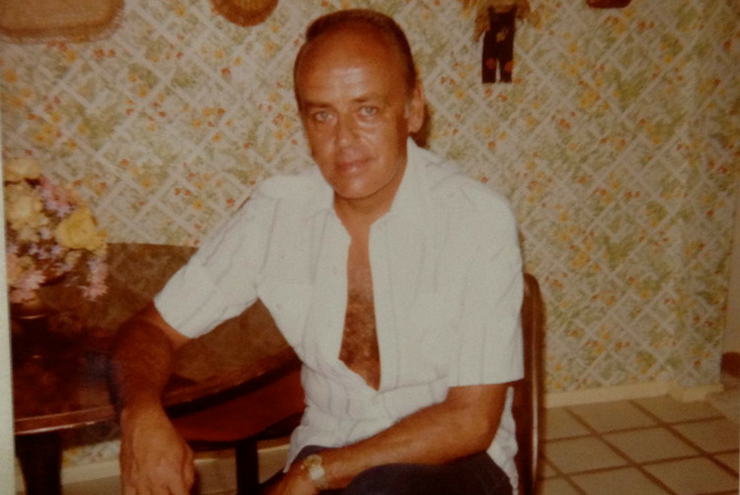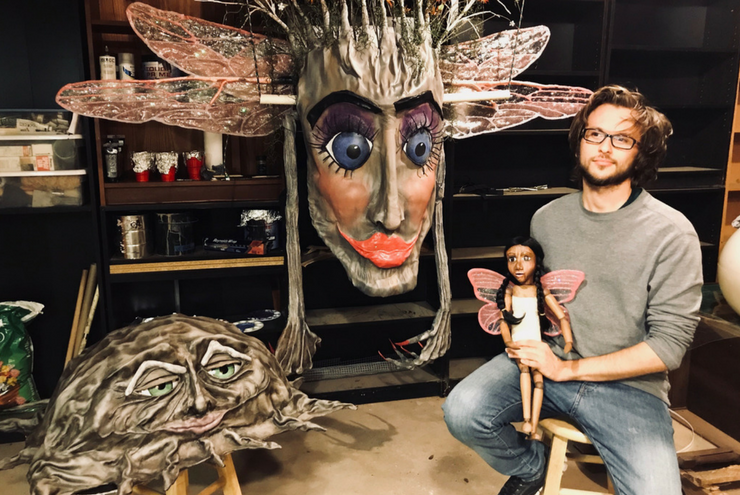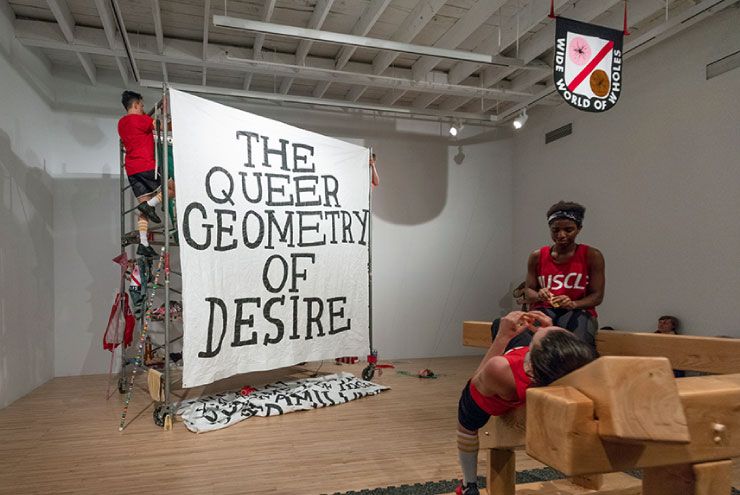By Trevor Boffone
While queer theatre certainly hasn’t breached mainstream Houston culture, one local playwright is trying to change that. On March 24, Houston-native, playwright, and performer Josh Inocéncio brings audiences a developmental production of The Little Edelweiss; or, An Immigrant’s Fairytale, the second installment in Splintered in Three: An American Trilogy, a trilogy that shines light on each of his three cultural backgrounds—Latino, Austrian, and Appalachian. The first play, Purple Eyes, which dramatizes the intersections of Latinidad and queerness, recently had its world premiere at Sin Muros: A Latina/o Theatre Festival. The final installment, Chocolate Gravy and White Jesus, will focus on Inocéncio’s Appalachian Kentucky roots and is still in development. While each piece of the trilogy is a standalone play, the three parts work in unison to tell the story of one Texas family as they cross borders throughout the world over the course of the last century. Inocéncio’s work mines a queer identity from U.S. history that is as American as apple pie and Uncle Sam.
The Little Edelweiss, a 2017 Eugene O’Neill semifinalist, finds its roots in the fantastical Austrian tales that Inocéncio’s grandmother read to him as a child. Inocéncio recalls, “I’d spend the night at her house and she’d read from an old book of fairytales and often she’d put her own spin on the stories. But she’d also weave in stories about growing up in Austria during the war. Her own life often felt like a fairytale. It was faraway, even fantastical, to me.”
The play tells the story of Manfred, Inocéncio’s bisexual great-uncle, from his adolescence in WWII Austria to his whirlwind life in the United States. Moving from state to state to work at hotels as an itinerant bartender, Manfred eventually drank himself to death. While he pursued an unrealistic version of the American Dream, he never found it. Rather, he was done in by the decadence that the United States offered him.
Manfred died in 1995, five years after Inocéncio was born. And even though they never met, Manfred left a lasting impression on his nephew. Because the details circling Manfred’s life are unclear, Inocéncio, like his grandmother and her fairytales, fills the world of The Little Edelweiss with fantasies of what Manfred’s life could have been like. “We think he had an affair with the movie star Tony Curtis, but we don’t know for sure. But because we have to rely on hearsay, his life feels more like legend than history now,” explains Inocéncio. “As a playwright, I wanted the freedom to stage imagined moments, but I also wanted to honor a genre that’s intimately connected to my Austrian lineage.” Ultimately, The Little Edelweiss challenges not only what we decide to remember from our family’s myths and histories, but more importantly, how we choose to breathe life into such memories.

‘The Little Edelweiss’ tells the story of Manfred, Josh Inocéncio’s bisexual great-uncle, from his adolescence in WWII Austria to his whirlwind life in the United States.
While every new play development workshop has specific goals, Inocéncio’s goals are twofold. First, the playwright is testing the script in front of an audience. Secondly, he wants to experiment with the puppets. “The three characters, Oma, Melitta, and Lola—all family members of mine who were intimately connected to Manfred—are portrayed through puppetry,” says Inocéncio. “Puppet-makers Ariel Emmerson and Erin Kehr worked for weeks on crafting puppets for the play and, as they are a requirement, I want to see how they operate in a reading before we move on to a full production.” In addition to valuable feedback during the week-long rehearsal process, audience members will have an opportunity to comment on the play and ask questions to the creative team during a talkback after the performance. While talkbacks always have a specific aim, this one will be geared towards seeing what works and what doesn’t work.
As an unabashedly queer play, The Little Edelweiss makes an important intervention in the Houston theatre community. Despite being the nation’s fourth largest city and a leading cultural center, Houston doesn’t have a dedicated professional LGBTQ theatre company. In the same vein, plays with explicitly queer content rarely make it onto Houston stages. In this way, The Little Edelweiss joins The Catastrophic Theatre’s production of Chana Porter’s Leap and the Net Will Appear and the Alley Theatre’s June production of Bekah Brunstetter’s The Cake as the rare moments of queer theatre in Space City. “We don’t have enough queer stories on Houston stages, but we’re doing better,” admits Inocencio. “As a playwright, the best I can do is continue writing plays with queer characters and themes and advocate for them here in Houston.”
The Little Edelweiss; or, An Immigrant’s Fairytale will be presented at 8 p.m. on March 24 at MATCH. Tickets are free, but must be reserved in advance. To donate, visit the project’s Indiegogo campaign.
Production Team
Director: Jeff Paden
Stage Manager: Kacie Pimentel
Puppet Designer: Ariel Emmerson
Puppet Mechanics: Erin Kehr
Puppet Construction: Ariel Emmerson and Erin Kehr
Scenic Designer: Ariel Emmerson
Costume Designer: Rainy Edwards
Lighting Designer: Mitchell Cronin
Master Carpenter: Russell Weeks
Graphic Design: Kelsey Gledhill
Manfred/Josh: Josh Inocéncio
Oma: Alli Villines
Melitta: Teresa Zimmermann
Lola: Briana Resa
Freud/Kellogg/Kinsey: Tommy Stuart
Tony Curtis: Bryan Kaplun
Stage Directions: Nathan Unroe







